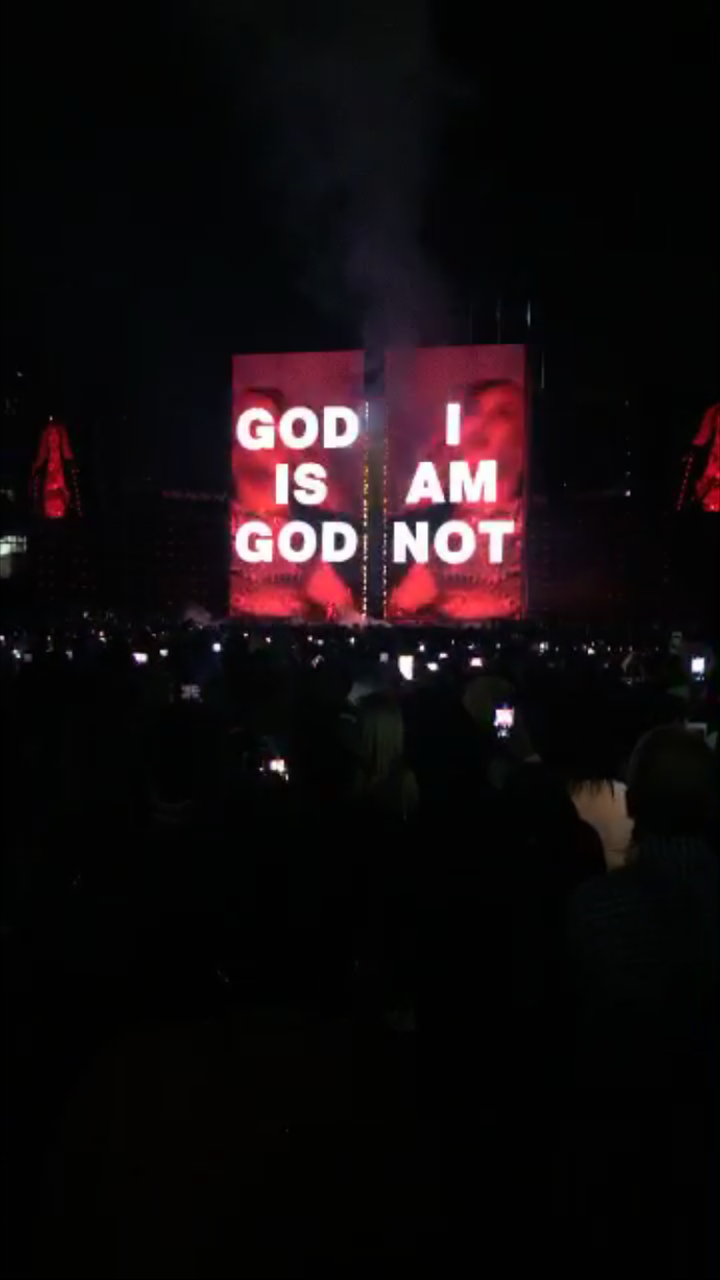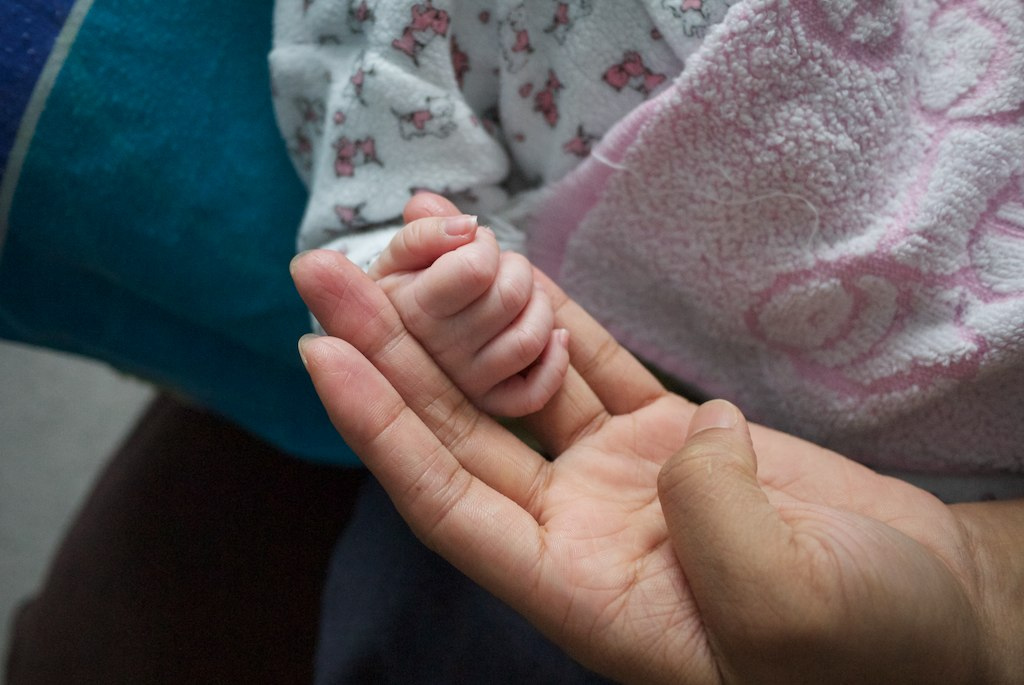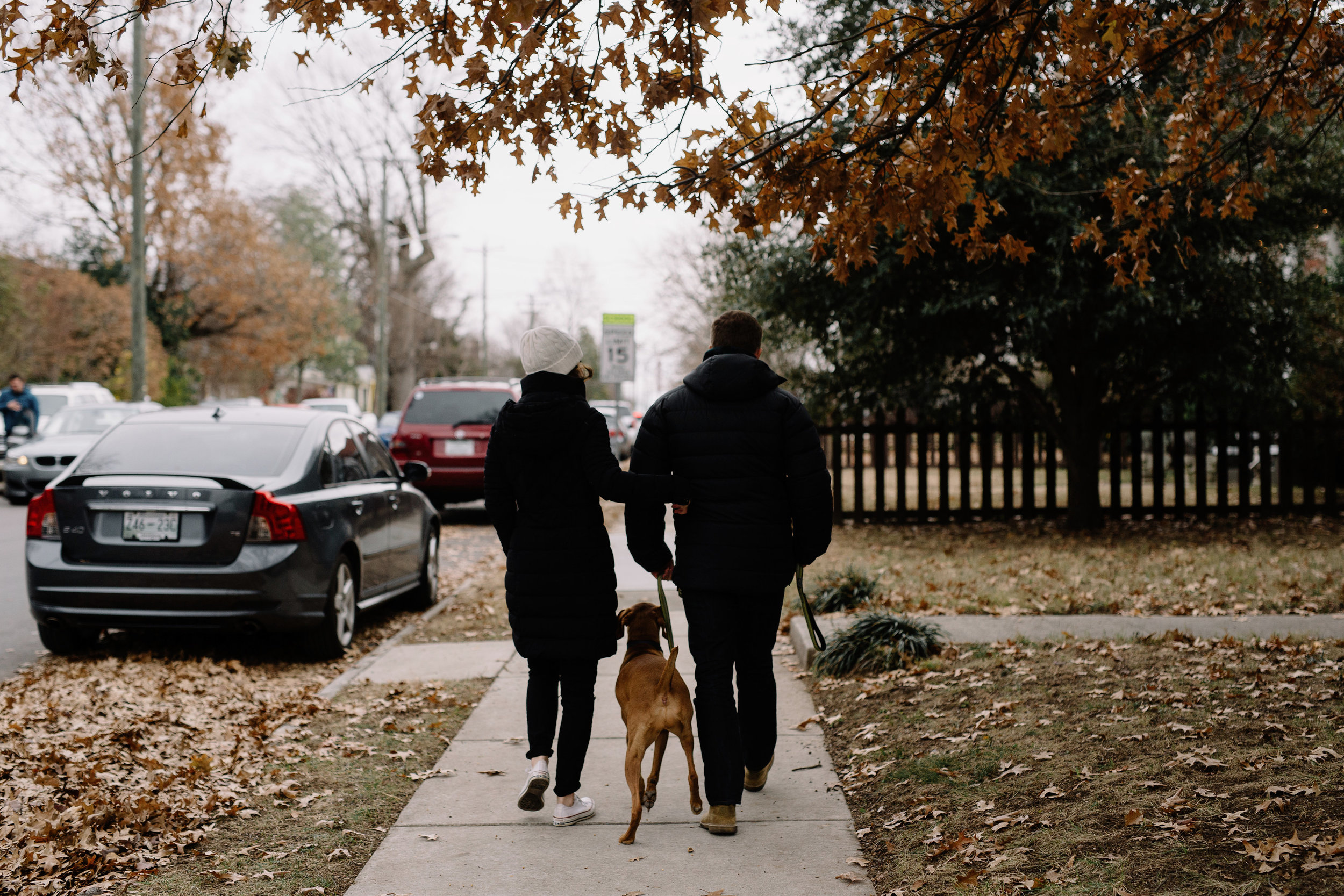 This is Part Two in a series on infertility. Click here to read Part One.
This is Part Two in a series on infertility. Click here to read Part One.
“Hope” is the thing with feathersThat perches in the soulAnd sings the tune without the wordsAnd never stops at all -And sweetest in the Gale is heardAnd sore must be the stormThat could abash the little BirdThat kept so many warm.I’ve heard it in the chillest landAnd on the strangest SeaYet never in Extremity,It asked a crumb of me.—Emily Dickinson
Infertility is particularly nasty because it tangles itself up in so many things: the past, the future, love, sex, creation, mystery, medicine, purpose—and perhaps worst of all—hope. Over the last several years, in test after test, doctors have continually put my husband and me in the “unexplained” category of infertility. There is no reason, medically speaking, that we shouldn’t be able to get pregnant. Many doctors have said that we should take this as a good sign—there is still hope.
Hope. There's that little word again. Of all the emotions I've carried during this season of life, I still can't seem to figure that one out. It's like a candle that's meant to light the way but only seems to burn me. If Hope never asked a crumb of Emily Dickinson, she's lucky. It has asked everything of me.
For years, we hoped that the doctors would be able to tell us what was "wrong." We wanted them to find the problem because if they found the problem, we could try and fix it. And if we could fix it, then we would be back in control. And if we've been told anything about fertility—we've been told it's something we can, should and have the right to control.
We live in a culture of planned parenthood and I'm not talking about the organization. In our nation, parenthood is seen as a life event that you choose or avoid, like attending college, getting married, or buying a house. It’s something that you schedule into your life, decide upon, and only commit to once you feel like you have enough life experience and money to do it successfully. By these standards, parenthood is a right to be exercised by consenting adults who are ‘ready’ (whatever that means) and economically secure (whatever that means).
Because of the choice paradigm, motherhood in America is often discussed as a cost-benefit analysis. An article by the Portland Press Herald estimated that for every year motherhood is delayed, career earnings increase by six percent. Even multi-billion dollar companies are venturing into this ethically ambiguous territory, encouraging delayed fertility by paying for their female employees to freeze their eggs. No doubt, another cost-benefit equation, since paying for egg-harvesting is cheaper than paying for maternity leave or training new employees.
The dictating of our parenthood goes even further than that. Journalist Lisa Ling recently published a fascinating study on the number of women that are opting to schedule C-Sections, despite evidence that it is a more expensive, riskier procedure than natural birth. Again. No surprise.
Told that we can have it all and control it all, we are trying. And we are exhausted.
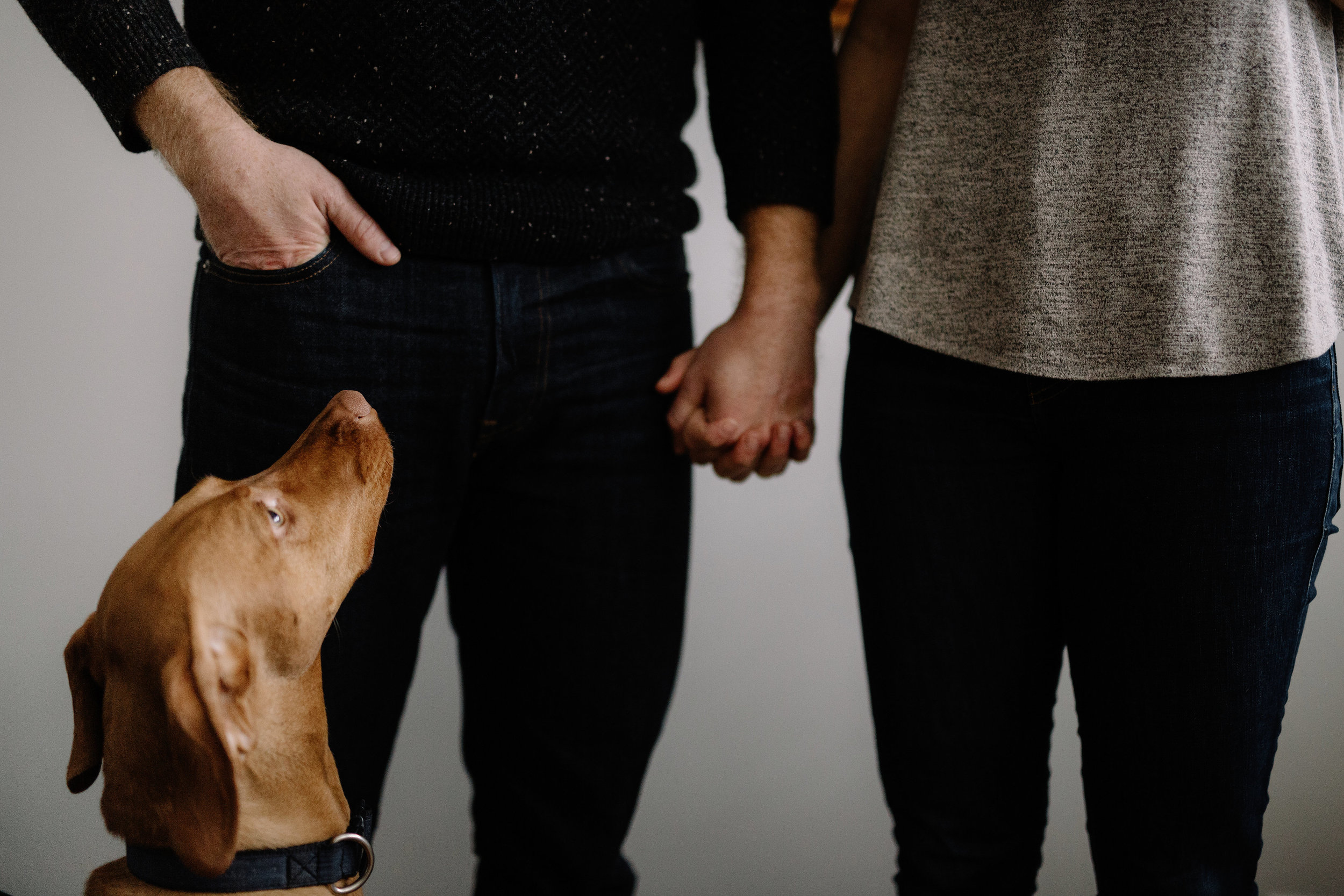
And yet, according to Nicholas Kristof and Sheryl WuDunn's book Half the Sky, still up to 40 percent of all pregnancies globally are considered unplanned. Sadly, almost half of those unplanned pregnancies result in induced abortions. While there could stand to be better access to contraception in some places, there is another statistic that provides the other half of that picture. According to the World Health Organization, an estimated 48.5 million couples worldwide are experiencing infertility. Some estimates put the rate of U.S. infertility as high as twelve percent.
Taken together, when we look at millions of unplanned pregnancies and millions more who are desperately wanting a pregnancy—it’s clear that whether we have access to contraception, abortion, or the greatest fertility doctors in the world—we’re not doing a great job at planning our parenthood.
We've been sold a bill of goods. There is no such thing as perfectly planning your parenthood. Not for Google employees. Not for the most fertile woman on the planet (my sister), and definitely not for me. Whether you’re pregnant and didn’t want to be, or you’re not pregnant wish you could be, the verdict is the same: what we want isn’t happening. We are not in control.
When you step out of the realm of control, you step into the realm of hope. And this is a far more dangerous realm.
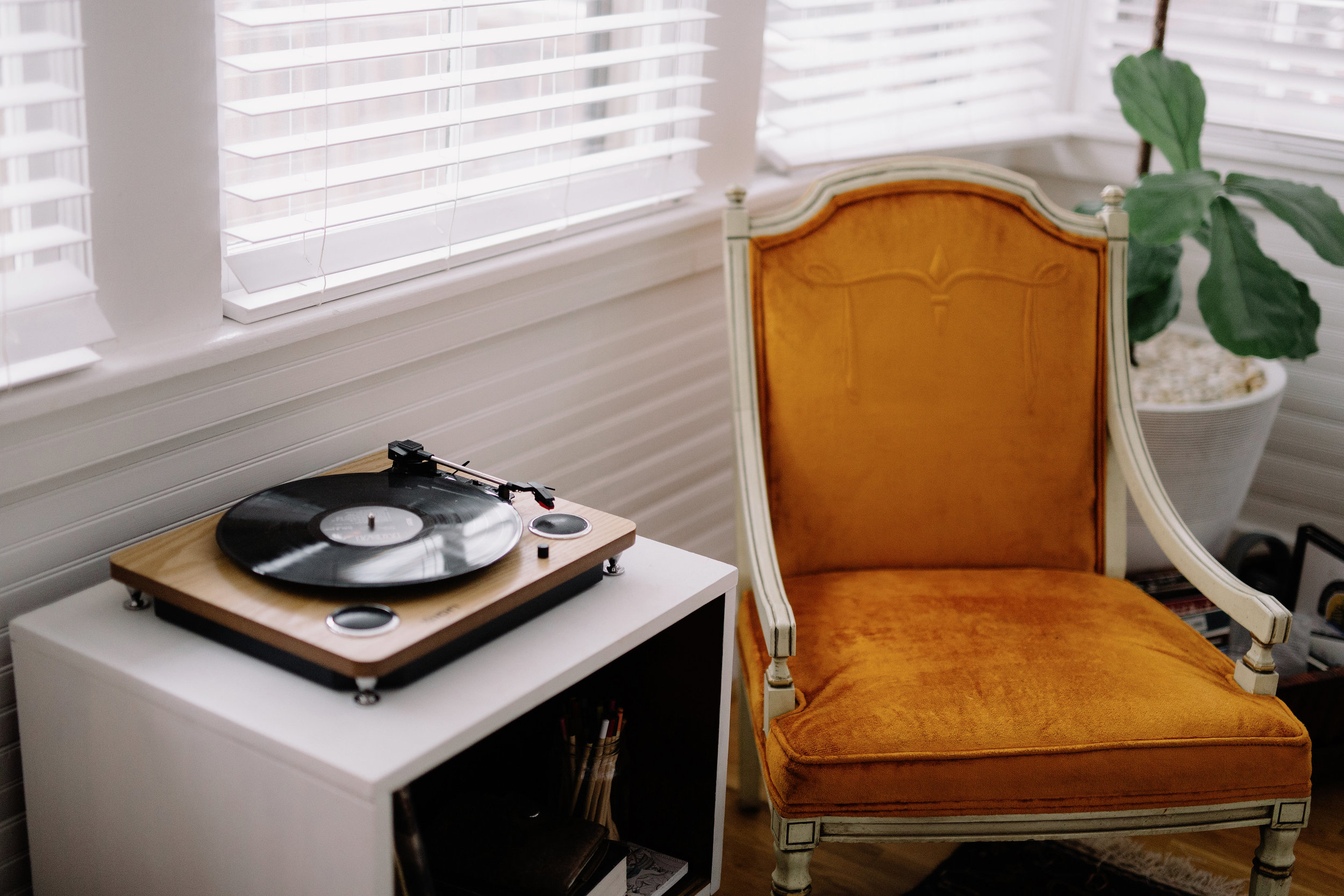
The realm of hope is unpredictable. It is a wild kingdom full of steep mountains and deep valleys. There are vistas that overlook craggy rocks, long rugged paths that lead down into darkness, and wild waterfalls of tears and anguish that lead to creeks of quietness and peace. Sometimes, there is only one path to walk—and it is treacherous, thick with mud and narrow, open on one side to a cliff. Other times there seems to be no path at all. To quote the newest Martin Scorsese trailer, “the moment you step into that country, you step into danger.”
By contrast, the realm of control is basically a series of flat roads that come to neat and tidy forks: this way or that way? There seems to be a destination, and some people are ahead while others are behind. Some go the way less traveled, but none the less, the realm of control is easily navigable, particularly with the help of the internet. (Alexa, what is IVF?)
In the realm of control, our sole purpose is to move forward unobstructed in the direction we want to go. In the realm of hope, our purpose is to wait and explore and stand in awe of beauty.
But more often, I can't see the beauty. More often the hope I'm holding breaks my heart, and in return, I want to strangle it dead.
This is how hope feels at the beginning. You can’t help but wonder if this is the month that the pregnancy test will go from one line to two. You search your body for symptoms, tell yourself you’re probably not pregnant, and then in the same moment, hear the voice of Hope in the back of your head saying, but… you could be. You always could be—and there is no reason not to stay positive. People get pregnant every day (often without meaning to). And, yes, there are stories of women who went two or three years before they got pregnant, and then bloop! It happened!
Psychologists regularly tout the benefits of positive thinking. A book an acupuncturist gave me once entitled “Making Babies” (barf) had an entire chapter devoted to teaching readers how to meditate while envisioning the different parts of their cycle. The book instructs you to sit, eyes closed, and imagine your endometrial lining growing thicker. The following week, it instructs you to think about the egg, and tell it it is welcome in your uterus. I am not laughing at this. In some ways, I think it is really healthy to be aware of what is happening in your body. But alas. Hope dies when the bleeding starts.
When disappointment sets in, hope is replaced by a harsh accuser that says, you were a fool to believe. The accuser tells me I am silly, alone, and that I wasted another month of my life worrying. You didn’t relax, the voice tells me. You hoped. When the accuser arrives, hope is nowhere to be found and to be honest, I never want it to come back again. I begin to think that the accuser is right—yes, Hope. That's what caused this pain.
I met with a friend recently who just discovered that she and her husband have a very low chance of ever having biological children. Her diagnosis is rare, and it leaves a 10 percent chance that at some point, she could get pregnant. I don’t know who came up with that number. But that’s the number for her. Ten percent.
“This is what I don’t understand,” she said to me, with tears in her eyes. “How much hope am I allowed to have?”
When she said it, my eyes filled with tears too. It’s such a good question. It’s the question. If she only has a ten percent chance of getting pregnant each month, should she only be ten percent hopeful? How do you measure hope? Is it possible to hold lesser amounts of hope? Perhaps, if that’s the case, hope is like a thermostat that you can turn up or down, as you wish. But, in my experience, of all the emotions in the world hope is the most like a light switch. It is either on or off. There is no middle ground. There is no less. Either the candle is lit or the candle is out. You can be a little angry. You can’t be little hopeful.
You also, interestingly, can’t be a little pregnant.
Like my friend, I so desperately don’t want to be hurt by the hope. And so, like a puzzle, I try to move pieces in and out of my life to control my hopefulness. Some months, I don’t pay attention to the calendar, in order to free my mind of the responsibility of knowledge. Some months, I drink wine without guilt, even though the acupuncturist recommended alcohol take a hiatus from my normal routine. Some months, I take prenatal vitamins religiously, like the sacrament, while others, I allow myself to forget, pretending for a time that I’m not concerned about folic acid. I work at this puzzle, trying to protect myself from pain, even though I know that the pain could be—most likely is—right around the corner.
This is the puzzle of hope: to hold onto it without being dragged down by the weight of it.
Hope is heavy. The Bible even calls it an anchor for my soul. But what happens when the anchor drags me down until I feel like I'm drowning? What happens when I'd rather kill it than hold onto it?
In a recent counseling session, I brought all this up with my counselor. What do I do with the hope? I can't seem to get it to stop showing up every month. It just arrives. It's a phoenix that burns up every month into a pile of ash, only to find its wings again in a few short weeks. I want it to die for good. But it keeps resurrecting.
"It's too heavy to carry," I told my counselor. Defiant, I refused to clean the tears off my cheeks.
"What does Jesus have to say about your Hope?" she asked me. (This is normal. My counselor often instructs me to close my eyes and picture myself with Jesus. Most of the time He is silent, which pisses me off. But sometimes— albeit rarely — He speaks by bringing scripture or feelings or images to mind.)
Though I felt resistant, I closed my eyes and tried to picture Jesus with my Hope... my cross to bear. Then, a picture came to my mind of Jesus carrying the cross. His cross. If I can carry this, he said, would you let me carry your hope? It felt like a relief to imagine it. Could it be that I could still have hope, but let him carry it instead?
I knew it wouldn't solve everything. The picture wouldn't make the disappointment any less disappointing. But for a moment, I could see a world where I had the hope, but didn't have to carry it. I could see a world where hope didn't have to die in order for me to live.
I don't have any solutions to the puzzle of hope. But this I know. Hope never promised to be light; it promised to bring light. In that way, it’s like a flashlight found in your grandfather’s basement: bulky, awkward, and sometimes out of batteries. But when the light goes on, you can see. But you're not alone. Someone else can carry it if you're too tired to do so.
I can't carry it anymore. He carries it for me.
2According to the Mayo Clinic, “endometriosis is an often painful disorder in which tissue that normally lines the inside of your uterus, the endometrium, grows outside your uterus.”

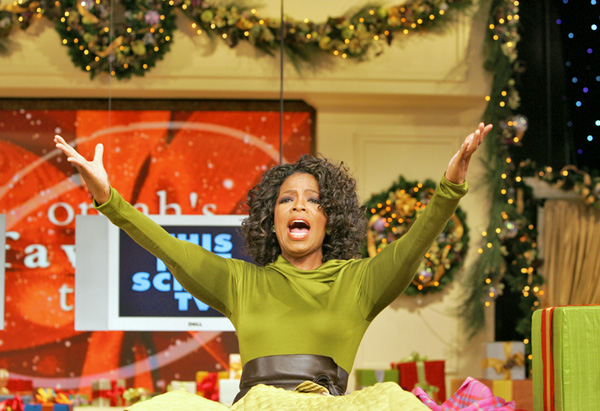
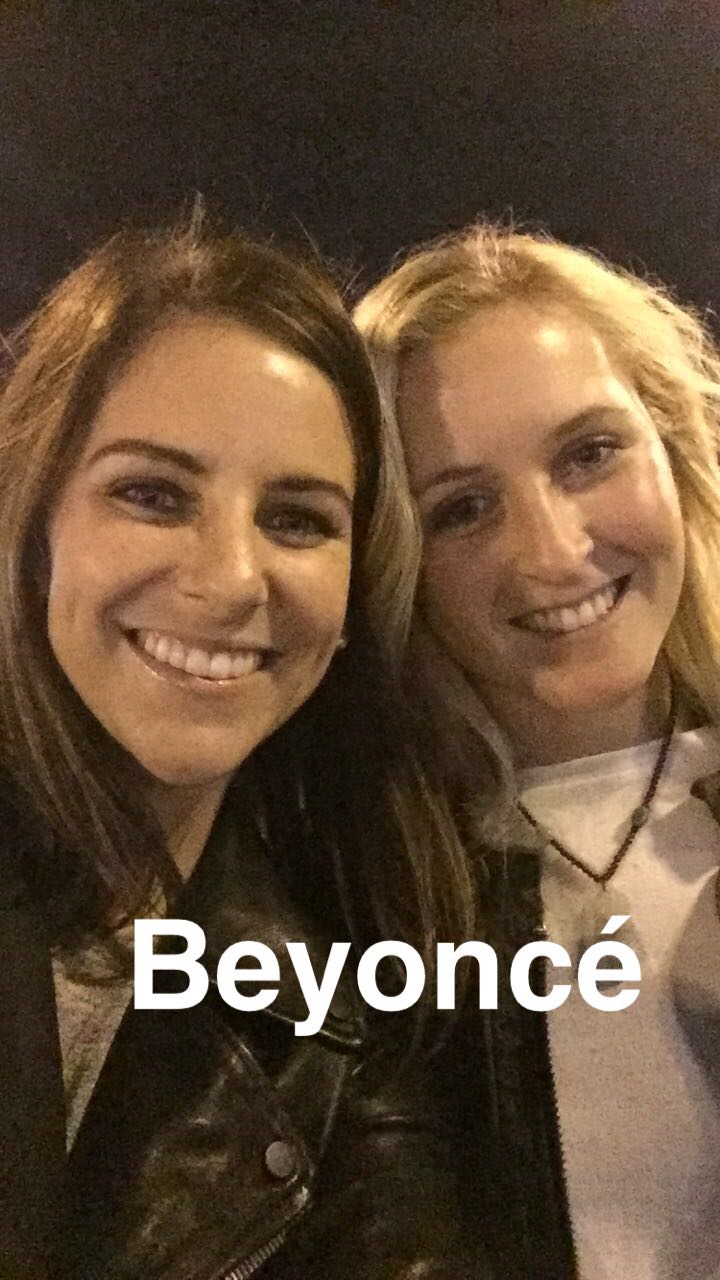 I've never been one for big arena shows because tickets are expensive, and even if you bite the bullet and shell out, chances are it won't be enough to really see the person you've paid to see. From the "J" section seat on the floor of the Titans Football Stadium (that seats 70,000 during a sold-out game), the best view I got of Beyoncé was through a sea of cell phones held up by other spectators zooming in to prove that they, too, were here.
I've never been one for big arena shows because tickets are expensive, and even if you bite the bullet and shell out, chances are it won't be enough to really see the person you've paid to see. From the "J" section seat on the floor of the Titans Football Stadium (that seats 70,000 during a sold-out game), the best view I got of Beyoncé was through a sea of cell phones held up by other spectators zooming in to prove that they, too, were here.